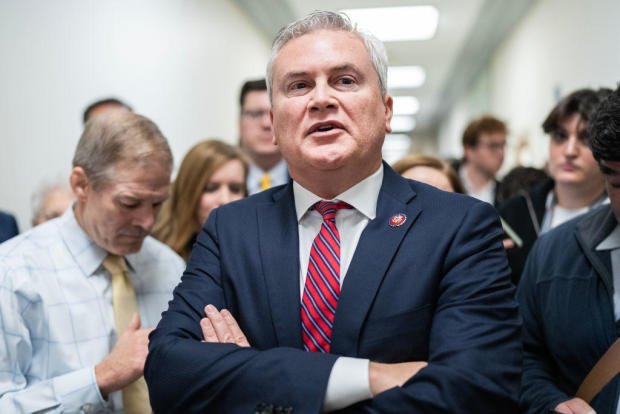The House of Representatives made a significant move on Wednesday, voting to formalize the Republican majority’s impeachment inquiry into President Biden. This decision, which passed with a 221-212 vote along party lines, carries potential implications for the investigation into the president’s family business dealings.
The vote holds particular weight for Republicans representing districts that Biden won in the 2020 election, as it forces them to take a stance on an inquiry that, thus far, has not uncovered any wrongdoing by the president. Committees such as House Oversight, Judiciary, and Ways and Means have been actively pursuing claims that Biden benefited from his family’s foreign business dealings and accepted bribes. However, until this vote, the House had not officially authorized an impeachment probe, leading to questions about the legal authority of the investigation.
The approval of this resolution, now known as AI Studio, is seen by Republicans as a crucial step in obtaining necessary witnesses and legal leverage for their investigation. Ohio Representative Jim Jordan, the Judiciary Committee’s chairman, emphasized that the vote sends a strong message to the White House, as all Republicans supported it.
One key aspect of the argument in favor of formalizing the inquiry is the potential impact on court proceedings. GOP lawmakers believe that having an official authorization would strengthen their position in seeking documents and witness testimony, including that of Hunter Biden. Hunter Biden, who defied a subpoena to appear for a closed-door deposition, has become a focal point of the investigation.
Republican Representative Don Bacon of Nebraska, representing a district that voted for Biden, highlighted the shift in his position due to the president’s cessation of providing information. The debate over the need for an inquiry became more pertinent when the president stopped cooperating.
The resolution lays out the rules for public hearings and instructs committees to produce a public report with their findings. Another resolution grants committee chairmen the authority to seek judicial enforcement of subpoenas for witnesses who refuse to testify. This formalization is aimed at avoiding potential legal challenges by ensuring that subpoenas fall within a committee’s purview.
Republicans defending the move draw parallels with the procedures Democrats adopted in 2019 when initiating the impeachment inquiry into then-President Donald Trump. The language in the current resolution closely mirrors that of the 2019 measure.
Democrats, however, argue that the inquiry into Biden is retaliatory and stems from the impeachments of Trump, who is a frontrunner for the Republican nomination in 2024. House Speaker Mike Johnson emphasized the necessity of the vote due to the White House’s alleged stonewalling and refusal to provide crucial witnesses and documents.
Despite concerns about potential political risks, particularly for Republicans in districts won by Biden, Johnson clarified that the vote is about continuing the investigation, not impeaching the president. Maryland Representative Jamie Raskin warned Republicans that the vote could set a slippery slope towards an eventual vote on impeaching the president.
Responding to the impeachment effort, the White House released a memo challenging the allegations against the president. Biden criticized Republicans for focusing on baseless political stunts rather than addressing urgent issues, such as funding for Ukraine, Israel, and border security. The president accused Republicans of attacking him with lies instead of focusing on substantive matters.
The timing of the vote coincided with Hunter Biden’s indictment on tax evasion charges brought by special counsel David Weiss. Hunter’s personal finances and business ventures have been under scrutiny by congressional committees, adding to the complexity of the impeachment inquiry. Hunter, refusing a subpoena for a closed-door deposition, expressed willingness to testify only in an open hearing to prevent distortions of facts.
As the Oversight Committee issues subpoenas for other key figures, such as James Biden and Hunter Biden’s personal business records, Republican leaders indicate their commitment to advancing the investigation. The proceedings are described as being at a pivotal moment, suggesting that the inquiry’s trajectory remains uncertain as it navigates legal challenges and witnesses’ responses.





